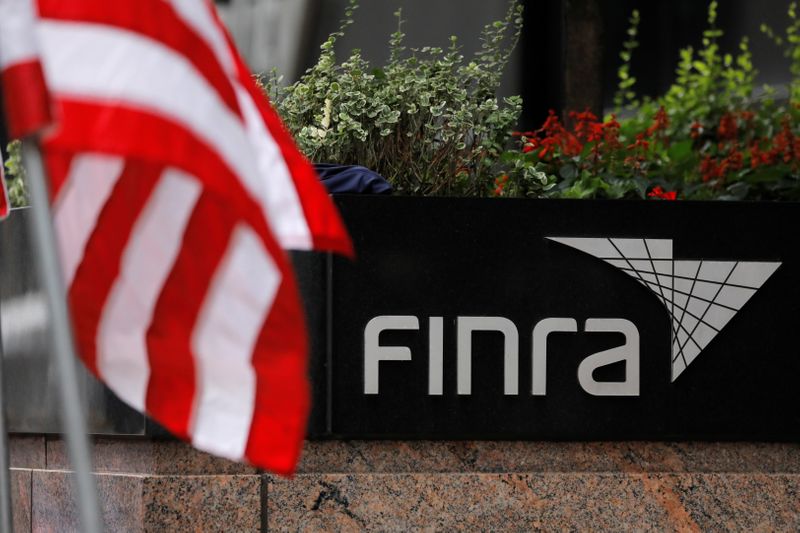By Katanga Johnson
WASHINGTON (Reuters) - The Financial Industry Regulatory Authority (FINRA), Wall Street's self-regulatory body, has proposed changes to its short-interest reporting requirements in a bid to make information more useful.
The proposed changes to Rule 4560 would increase the frequency of short-interest reports from twice a month to weekly or even daily. The change would require clearing firms to report synthetic short exposure - bets made against shares via derivatives - in firm and customer accounts.
The move highlights intensifying scrutiny of short-selling, betting against shares to profit if they fall, amid ongoing volatility in "meme stocks." These are driven by retail investors banding together to squeeze hedge funds that bet against GameStop (NYSE:GME) AMC Entertainment (NYSE:AMC) Holdings Inc and other stocks.
The changes would also require clearing firms to report to FINRA certain information on the stock loans that facilitate short bets "for regulatory purposes, but with an eye toward eventual public dissemination," amid other changes, said the watchdog. The proposal was released late Friday.
"These potential changes could improve the usefulness of short sale-related information to FINRA, other regulators, investors and other market participants," FINRA said.
FINRA is an industry-financed self-regulatory organization overseen by the U.S. Securities and Exchange Commission (SEC).

The proposed changes, which are subject to public consultation, would likely increase the burden on clearing firms and prime brokers, who bear the primary responsibility for short interest reporting under the current requirements, FINRA said.
The agency currently collects and publish this data but it is not easy for many investors to access. This proposal seeks to address that.